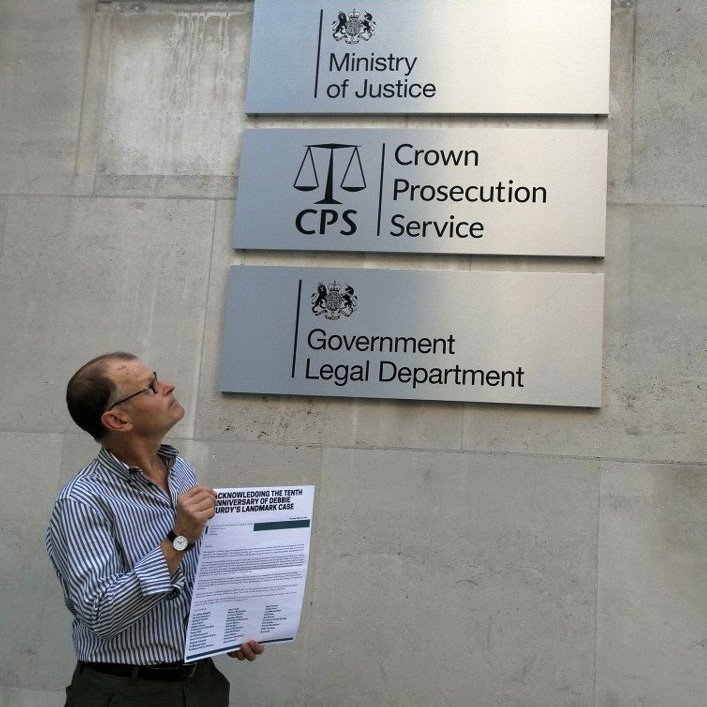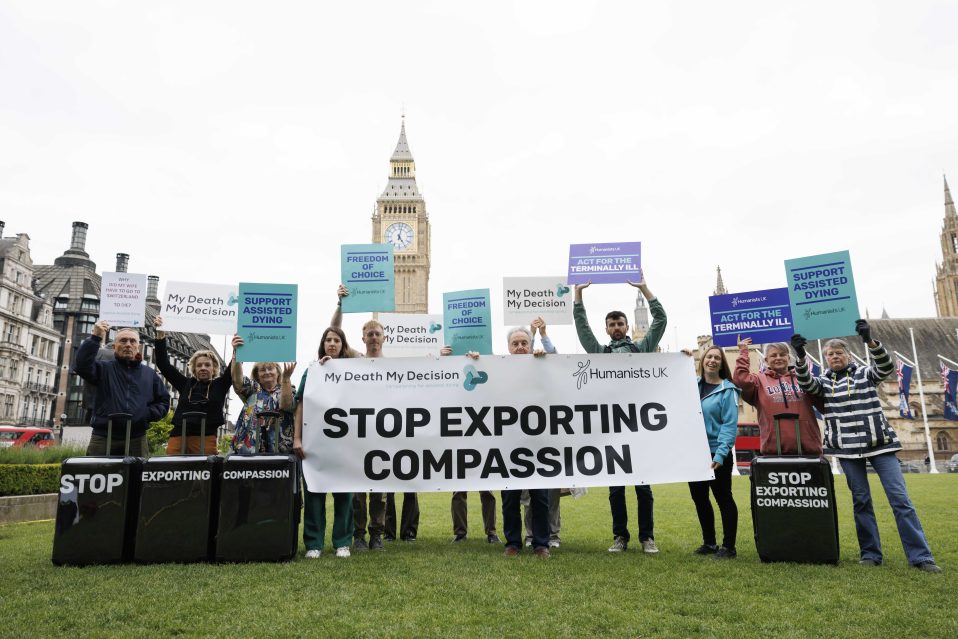Two recent news stories concerning suicide inquests demonstrate again how the current assisted suicide law prevents people who are incurably suffering having the peaceful death they would choose.
Reports in the Mirror and the Guardian cover the inquest into the death of Ralph Snell, 94, who took a mix of morphine and sleeping pills to deliberately end his life due to severe back pain and insomnia resulting from osteoporosis. The Mirror reports that he had previously tried to electrocute himself with a phone charger. His wife and son were arrested on suspicion of assisting suicide as they were with Mr Snell when he died. They were later released without charge.
Trevor Moore, Chair of My Death, My Decision said:
A second case, reported in the Daily Post, describes the suicide of Pauline Owen, 67, who suffered from terminal breast cancer which she had been living with for 3 years. She drowned in a canal in North Wales. She had no close relatives. The paper reports that her suicide note explained that she had refused cancer treatment and had planned to take her own life once the illness got out of control. She apologised to those who would discover the note, but blamed “successive governments” for not allowing people to end their own lives in a “controlled and dignified manner”.
The cases highlight many failings in the current law including:
- Doctors (and others) are unable to hold meaningful discussions with patients about how they could safely and painlessly end their lives. Such conversations are an opportunity to ensure that all possible palliative alternatives had been fully explored before any decision is made about the person ending their life. In this respect, the doctor/patient relationship is currently broken – at a time when it is needed most. Evidence from countries that have assisted dying legislation suggests that, in some cases, simply having the knowledge that help to end their life will be available when absolutely necessary is sufficient for some people to choose to continue living until a natural, peaceful death arrives.
- Legal access to lethal medication which can reliably cause a peaceful, painless death is highly dependent on the nature of the illness, the situation and the attitude of the doctor. In Mr Snell’s case, medication to control his pain and insomnia was available which proved lethal in excess quantity. However, without professional advice this approach is dangerous as it could lead to a failed suicide, leaving the person in a worse condition. In contrast, Ms Owen appeared not to have that option, so felt compelled to take a much more drastic approach.
- Caring relatives are put in a very difficult situation – wanting to do the best for the person suffering, but risking arrest and investigation which can take a long time and adds a lot of unnecessary stress at a time of loss and grieving.
- Those who feel they have no option but to end their lives by using violent methods, or in public places, cause distress to the unlucky person who discovers their body. Ms Owen was fully aware of this and apologised in advance for the distress she knew she would cause to someone – possibly a child. How desperate must she have felt to take this action?
- People like Ms Owen are taking their lives while they still can, knowing that if they leave it too late nobody else will be able to help them. In many cases, with the right care and with the option of a medically assisted death, they would choose to live longer, possibly until death occurs naturally.
- Refusal of life sustaining treatment was not an acceptable option in either of these cases. Refusal of treatment is something that is legal and is sometimes used by opponents of a change in the assisted dying law as a reason why the current law does not need changing. This argument was used by Baroness Finlay, in her talk at Bristol University and in evidence in the Noel Conway legal challenge. Cases like these show the weakness of this argument.
- Organisations like MDMD cannot legally offer advice on best methods to end life. We get many requests from desperate people seeking such advice, but as a campaign organisation that works within the UK law, we are unable to offer advice to people who really need careful professional counselling, nor do we have the relevant skills. Those who are suffering intolerably and incurably need support that is relevant to them and their choices – that can only happen when the law changes.
It is hard to obtain reliable data on how many people choose to end their life due to incurable and intolerable suffering, like the two cases reported here. Research by the Assisted Dying Coalition finds that more than one person per week from the UK has an assisted death in Switzerland and that around 1500 UK citizens are currently members of one of the Swiss organisations which offer Assisted Dying to non-Swiss citizens. Research by Dignity in Dying estimates approximately 300 suicides per year by terminally ill people in England. This excludes those like Ralph Snell and Sir Nicholas Wall who were not “terminally ill“. The true figure for the whole UK will therefore be considerably in excess of 350 people per year. How many more people would like the option of a medically assisted death towards the end of their life? Judging by our opinion poll, up to 93%.
What you can do to help our campaign:
- Please support us! Become a member and make a financial donation.
- Spread the word to others and encourage them to join us too. Articles on this website aim to raise awareness of the complex issues involved.






Recent Comments